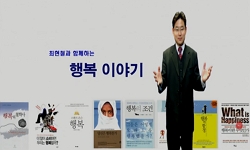In this paper I discuss a question that has baffled Aristotle commentators for centuries, namely whether the ultimate moral end, or well-being, is determined by practical reasoning or irrational desire. A number of scholars have suggested something ca...
http://chineseinput.net/에서 pinyin(병음)방식으로 중국어를 변환할 수 있습니다.
변환된 중국어를 복사하여 사용하시면 됩니다.
- 中文 을 입력하시려면 zhongwen을 입력하시고 space를누르시면됩니다.
- 北京 을 입력하시려면 beijing을 입력하시고 space를 누르시면 됩니다.

숙고, 잘-삶 그리고 실천지에 대하여 – 거대목적이론(Grand End Theory)에 대항하여 - = Deliberation, Well-being and Practical Wisdom -Against the Grand-End Theory-
한글로보기https://www.riss.kr/link?id=A104201848
-
저자
김도형 (The Univ. of Edinburgh)
- 발행기관
- 학술지명
- 권호사항
-
발행연도
2014
-
작성언어
Korean
-
주제어
Deliberation ; Well-being ; Practical Wisdom ; Means ; Ends ; 숙고 ; 행복 ; 실천지 ; 수단 ; 목적
-
등재정보
KCI등재
-
자료형태
학술저널
-
수록면
55-93(39쪽)
-
KCI 피인용횟수
2
- 제공처
-
0
상세조회 -
0
다운로드
부가정보
다국어 초록 (Multilingual Abstract)
In this paper I discuss a question that has baffled Aristotle commentators for centuries, namely whether the ultimate moral end, or well-being, is determined by practical reasoning or irrational desire. A number of scholars have suggested something called Grand-End Theory, which argues that, for Aristotle, deliberation determines, in each individual moral agent, what well-being is. According to this view, Aristotle says that we can also deliberate about the constitutional means that are the conceptual definitions of ends, so there is no good reason not to claim that ends too can be deliberated about, as long as their constitutional means can be. And, more importantly, on top of all other ends there is well-being, which is conceptually prior to these ends. They argue, finally, that the supreme end can be deliberated about too, so that for Aristotle, eudamonia is determined by practical reasoning. However, I do not agree with this interpretation of Aristotle's account of deliberation and well-being. In response, I show that their interpretation of passages that they regard as textual evidence is incorrect, and argue that the major premise of Grand-End Theory is fundamentally wrong.
국문 초록 (Abstract)
이 글은 아리스토텔레스의 숙고에 대한 하나의 주류의 해석으로 받아들여지고 있는 거대목적이론 (Grand End Theory)- 행복이 도덕적 숙고의 과정을 통해서 규정될 뿐 아니라, 행복에 대한 이해를 통해서 숙고가 시작된다고 주장하는 –의 문제점을 부각하기 위한 논의이다. 그들은 아리스토텔레스가 말하는 숙고의 대상들은 단지 행위를 물리적으로 발생시키는 '도구적 수단들(instrumental means)'뿐 아니라, 추상적인 궁극적 목적을 개념적으로 구체화하는 구성적 수단들(constitutional means)도 포함된다고 설명한다. 나아가, 그들은 ‘구성적 수단들’은 도덕적 목적들에 대한 이론적 정의들과 다르지 않으므로, 결국 이것들에 대한 숙고가 가능하다는 것은 목적들에 대한(정의를 도출하는) 숙고가 일반적으로 가능하다는 것을 의미한다고 주장한다. 결국, 거대목적이론은 아리스토텔레스의 숙고는 궁극적 목적인 행복에 대한 정의 역시 구성할 뿐 아니라, 그 ‘행복’에 대한 정의를 통해서 시작되는 바의 실천적 추론이라고 주장한다.
이러한 거대목적이론에 대한 우리의 비판은 엄격하게 문헌해석에 기반을 둔다. 우리는 문제의 문헌들, 즉, 형이상학 7.7, 1032b2~29, 니코마코스 윤리학 6.5, 1140a25~33, 6.7, 1141b9~14, 6.9, 1142b28-33에 대한 그들의 해석에 문제가 있음을 보이며, 거대목적이론의 문헌근거로 종종 이해되는 문헌들 자체가 실제로 그들의 주장을 제대로 지지하지 못한다는 것을 보이면서, 그들의 주장에 대해 근본적 의문을 제기한다. 그리고 이 글은 마지막으로 이 문제의 문헌들에 대한 그들의 오역은 ‘사소한 실수’나 우연이 아니라 잘못된 전제– 행복의 숙고의 대상이라는-를 설정한 것으로부터 비롯한 필연적 결과임을 주장하며 논의를 마무리한다.
이 글의 논의는 기본적으로 숙고에 대한 유명한 논쟁, 즉, ‘숙고 (bouleusis)는 목적에 이바지하는 것들(ta pros to telos)에만 관여하는가 아니면 목적들(ta telê)에도 관여하는가’에 대한 것이다. ...
이 글의 논의는 기본적으로 숙고에 대한 유명한 논쟁, 즉, ‘숙고 (bouleusis)는 목적에 이바지하는 것들(ta pros to telos)에만 관여하는가 아니면 목적들(ta telê)에도 관여하는가’에 대한 것이다. 그리고 그 논의와 관련하여 우리는 아리스토텔레스 윤리학에서 ‘궁극적 목적’이자 행위의 ‘제일 원리’인 ‘행복’에 대한 이론적 정의가 숙고 - 아리스토텔레스적 버전의 실천이성이라고 할 수 있는-를 통해 구성된다고 주장하는 하나의 해석을 비판하고자 한다.
이 글은 아리스토텔레스의 숙고에 대한 하나의 주류의 해석으로 받아들여지고 있는 거대목적이론 (Grand End Theory)- 행복이 도덕적 숙고의 과정을 통해서 규정될 뿐 아니라, 행복에 대한 이해를 통해서 숙고가 시작된다고 주장하는 –의 문제점을 부각하기 위한 논의이다. 그들은 아리스토텔레스가 말하는 숙고의 대상들은 단지 행위를 물리적으로 발생시키는 '도구적 수단들(instrumental means)'뿐 아니라, 추상적인 궁극적 목적을 개념적으로 구체화하는 구성적 수단들(constitutional means)도 포함된다고 설명한다. 나아가, 그들은 ‘구성적 수단들’은 도덕적 목적들에 대한 이론적 정의들과 다르지 않으므로, 결국 이것들에 대한 숙고가 가능하다는 것은 목적들에 대한(정의를 도출하는) 숙고가 일반적으로 가능하다는 것을 의미한다고 주장한다. 결국, 거대목적이론은 아리스토텔레스의 숙고는 궁극적 목적인 행복에 대한 정의 역시 구성할 뿐 아니라, 그 ‘행복’에 대한 정의를 통해서 시작되는 바의 실천적 추론이라고 주장한다.
이러한 거대목적이론에 대한 우리의 비판은 엄격하게 문헌해석에 기반을 둔다. 우리는 문제의 문헌들, 즉, 형이상학 7.7, 1032b2~29, 니코마코스 윤리학 6.5, 1140a25~33, 6.7, 1141b9~14, 6.9, 1142b28-33에 대한 그들의 해석에 문제가 있음을 보이며, 거대목적이론의 문헌근거로 종종 이해되는 문헌들 자체가 실제로 그들의 주장을 제대로 지지하지 못한다는 것을 보이면서, 그들의 주장에 대해 근본적 의문을 제기한다. 그리고 이 글은 마지막으로 이 문제의 문헌들에 대한 그들의 오역은 ‘사소한 실수’나 우연이 아니라 잘못된 전제– 행복의 숙고의 대상이라는-를 설정한 것으로부터 비롯한 필연적 결과임을 주장하며 논의를 마무리한다.
참고문헌 (Reference)
1 손병석, "아리스토텔레스에게 있어서 실천지의 적용단계" 48 : 21-43, 2000
2 김대오, "아리스토텔레스 윤리학에서 실천지의 역할" 철학연구회 (65) : 55-73, 2004
3 전헌상, "‘함’[praxis]과 ‘만듦’[poi?sis]―『니코마코스 윤리학』VI. 4-5 ―" 한국서양고전학회 (23) : 97-126, 2005
4 MacIntyre, A., "Whose Justice? Which Rationality?" Duckworth 1988
5 Annas, J., "The Morality of Happiness" Oxford University Press 1993
6 Nussbaum, M., "The Fragility of Goodness – Luck and Ethics in Greek Tragedy and Philosophy" Cambridge University Press 1986
7 Grant, A, "The Ethics of Aristotle, illustration with essays and notes, vol 2" Longmans, Green and co 1874
8 Burnet, J., "The Ethics of Aristotle" Metheun 1900
9 Cooper, J., "Reason and Human Good in Aristotle" Hackett 1986
10 전헌상, "Practical Wisdom and Knowledge of the End in Aristotle’s Ethics" 한국서양고전학회 (36) : 43-63, 2009
1 손병석, "아리스토텔레스에게 있어서 실천지의 적용단계" 48 : 21-43, 2000
2 김대오, "아리스토텔레스 윤리학에서 실천지의 역할" 철학연구회 (65) : 55-73, 2004
3 전헌상, "‘함’[praxis]과 ‘만듦’[poi?sis]―『니코마코스 윤리학』VI. 4-5 ―" 한국서양고전학회 (23) : 97-126, 2005
4 MacIntyre, A., "Whose Justice? Which Rationality?" Duckworth 1988
5 Annas, J., "The Morality of Happiness" Oxford University Press 1993
6 Nussbaum, M., "The Fragility of Goodness – Luck and Ethics in Greek Tragedy and Philosophy" Cambridge University Press 1986
7 Grant, A, "The Ethics of Aristotle, illustration with essays and notes, vol 2" Longmans, Green and co 1874
8 Burnet, J., "The Ethics of Aristotle" Metheun 1900
9 Cooper, J., "Reason and Human Good in Aristotle" Hackett 1986
10 전헌상, "Practical Wisdom and Knowledge of the End in Aristotle’s Ethics" 한국서양고전학회 (36) : 43-63, 2009
11 Dahl, N. O., "Practical Reason, Aristotle, and Weakness of Will" University of Minnesota Press 1984
12 Stewart, J. A., "Notes on the Nicomachean Ethics of Aristotle, vol. 1 & 2" Clarendon 1892
13 Richardson Lear, G., "Happy Lives and the Highest Good; an Essay on Aristotle’s Nicomachean Ethics" Princeton University Press 2004
14 Irwin, T., "First Principles in Aristotle's Ethics" 3 : 252-272, 1978
15 Broadie, S., "Ethics with Aristotle" Oxford University Press 1991
16 Wiggins, D., "Essays on Aristotle’s Ethics" University of California Press 221-240, 1980
17 Tuozzo, T. M., "Essays In Ancient Greek Philosophy 4: Aristotle’s Ethics" SUNY Press 1991
18 Kenny, A., "Aristotle’s Theory of the Will" Duckworth 1979
19 Acrkill, J.L, "Aristotle’s Ethics" Faber & Faber 1973
20 Bostock, D., "Aristotle’s Ethics" Oxford University Press 2001
21 Irwin, T., "Aristotle, Nicomachean Ethics" Hackett 1999
22 Broadie, S, "Aristotle, Nicomachean Ethics" Oxford University Press 2002
23 Sorabji, R,., "Aristotle on the Role of Intellect in Virtue’" 74 : 107-129, 1973
24 Greenwood, M.A, "Aristotle Nicomachean Ethics Book Six with Essays, Notes and Translation" Cambridge University Press 1909
동일학술지(권/호) 다른 논문
-
자살에 대한 치료적 설명: 정신분석, 로고테라피, 목적론적 상담의 비교
- 범한철학회
- 이영의
- 2014
- KCI등재
-
- 범한철학회
- 강지은
- 2014
- KCI등재
-
『논리-철학 논고』에 나타난 비트겐슈타인의 윤리학과 미학
- 범한철학회
- 김이균
- 2014
- KCI등재
-
- 범한철학회
- 고현범
- 2014
- KCI등재
분석정보
인용정보 인용지수 설명보기
학술지 이력
| 연월일 | 이력구분 | 이력상세 | 등재구분 |
|---|---|---|---|
| 2026 | 평가예정 | 재인증평가 신청대상 (재인증) | |
| 2020-01-01 | 평가 | 등재학술지 유지 (재인증) |  |
| 2017-01-01 | 평가 | 등재학술지 유지 (계속평가) |  |
| 2013-01-01 | 평가 | 등재학술지 유지 (등재유지) |  |
| 2010-01-01 | 평가 | 등재학술지 유지 (등재유지) |  |
| 2008-01-01 | 평가 | 등재학술지 유지 (등재유지) |  |
| 2005-01-01 | 평가 | 등재학술지 선정 (등재후보2차) |  |
| 2004-01-01 | 평가 | 등재후보 1차 PASS (등재후보1차) |  |
| 2003-01-01 | 평가 | 등재후보학술지 선정 (신규평가) |  |
학술지 인용정보
| 기준연도 | WOS-KCI 통합IF(2년) | KCIF(2년) | KCIF(3년) |
|---|---|---|---|
| 2016 | 0.53 | 0.53 | 0.5 |
| KCIF(4년) | KCIF(5년) | 중심성지수(3년) | 즉시성지수 |
| 0.51 | 0.47 | 1.284 | 0.12 |




 KCI
KCI eArticle
eArticle






